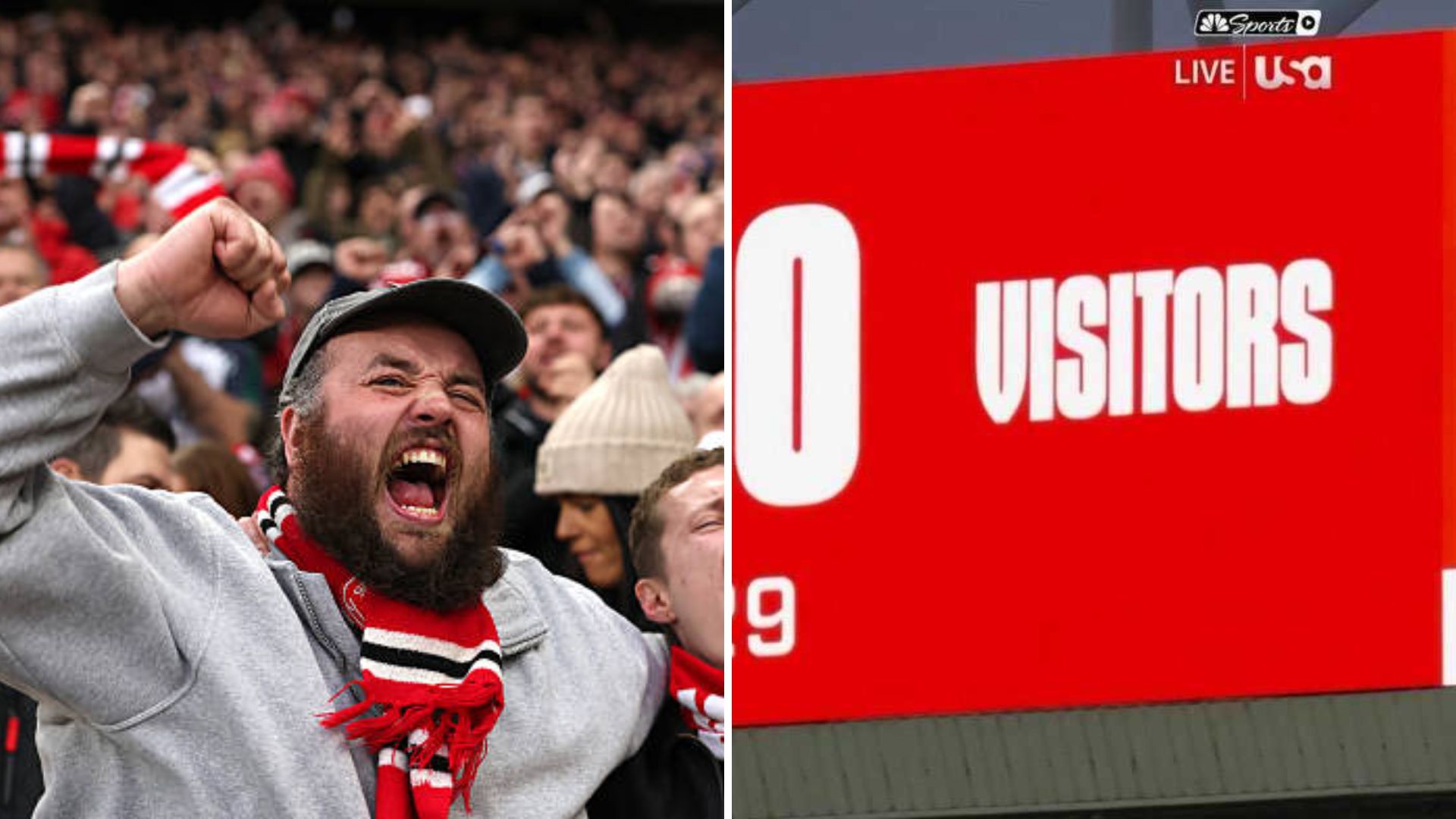Sunderland took the Tyne-Wear derby rivalry to unprecedented levels of pettiness on Sunday, refusing to display Newcastle’s name on the Stadium of Light scoreboard during their 1-0 victory.
The Black Cats secured bragging rights on the pitch thanks to a bizarre Nick Woltemade own goal, but it was the club’s off-pitch antics that sparked a frenzy on social media.
In a move widely celebrated by the home faithful, Sunderland broke with Premier League protocol to deliver a calculated insult to their bitter rivals Newcastle.
Sunderland refuse to name Newcastle on stadium scoreboard
Fans inside the stadium and viewers at home were quick to spot the deliberate omission.
While every other away side at the Stadium of Light this season has been afforded the courtesy of having their full club name displayed, Newcastle were reduced to a single generic word: “Visitors.”
The digital scoreboard read ‘Sunderland 1 – 0 Visitors’ for the duration of the match.

The decision was no accident. Reports confirmed that previous opponents had their names and crests fully visible, making this a specific, sanctioned dig at the Magpies.
It set the tone for a hostile atmosphere where Regis Le Bris’s side ultimately stifled Eddie Howe’s men to claim a vital three points.
Sunderland take long-awaited revenge
This top-tier pettiness was widely interpreted as long-awaited revenge for the January 2024 FA Cup debacle.
On that occasion, Sunderland’s ownership faced a mutiny after allowing the ‘Black Cats Bar’ to be redecorated with Newcastle slogans to welcome corporate hospitality guests.
Sunday was the payback. Not only did they erase Newcastle’s identity from the screens, but the Sunderland squad also twisted the knife after the final whistle.
Sunderland returned the favour, taking a team photo in front of their fans on the pitch after a 1-0 win over Newcastle ?
Newcastle did the same in the FA Cup back in early 2024… pic.twitter.com/v05iqAkALa
— ESPN UK (@ESPNUK) December 14, 2025
Replicating the infamous team photo celebration that Newcastle assistant Jason Tindall orchestrated on the Stadium of Light turf two years ago, the Sunderland players and staff gathered in front of the South Stand to recreate the exact pose, mocking their neighbours in the most direct way possible.











